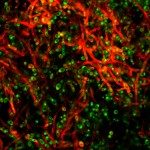Institut Pasteur is looking for an Early Stage Researcher (ESR) with a focus on studying the molecular basis of niche specificity in the fungal pathogen of humans, Candida albicans. Fungal infections are an increasing concern in developed countries, especially in the hospital setting where they have become one of the first causes of nosocomial infections. A majority of life-threatening systemic fungal infections are caused by species of the genus Candida, among which C. albicans is the most frequent.
The PhD student will be based in the Fungal Biology and Pathogenicity Unit at Institut Pasteur, led by Prof. Christophe d’Enfert. The main aims of the Fungal Biology and Pathogenicity Unit are to study the biology of C. albicans, the pathophysiology of infections due to this opportunistic pathogen and their epidemiology, with a view to providing solutions for the management of fungal infections. The Fungal Biology and Pathogencity Unit studies C. albicans genomic diversity, its phenotypic consequences and its underlying mechanisms. A second aim of the Unit is to understand the molecular mechanisms that underlie the colonization of abiotic and biotic surfaces by C. albicans. Research on these themes relies on functional genomics tools, some of which are developed within the Unit.
The current project is in the framework of FunHoMic: “Deciphering the fungus-host-microbiota interplay to improve the management of fungal infections”, a Marie Skłodowska-Curie Innovative Training Network which started on the 1st of January 2019 (See more details at www.funhomic.eu).
About the ESR project:
The PhD student will investigate the molecular mechanisms that underlie niche specificity of a specific subgroup of C. albicans isolates. These strains show phenotypically distinct features, a tropism for the genital tract, and reduced genetic diversity despite worldwide dissemination. Moreover, they harbour unique mutations that may explain their unusual niche specificity. As part of his/her PhD project, the successful candidate will compare the behaviour of these isolates with that of isolates that do not show niche restriction using ex vivo and in vivo models of colonization, superficial and disseminated infection, and inter-individual transmission. Further, the PhD student will evaluate the contribution of identified non-sense mutations to niche specificity. Strains will be engineered using the CRISPR-cas9 methodology and the impact of the changes on niche specificity will be evaluated using ex vivo and in vivo models of infection.
During the project the candidate will be seconded as following: 3 months at BIOASTER, Lyon, France to investigate the secreted metabolome of C. albicans isolates, and 3 months at Mimetas, Leiden, The Netherlands to contribute to the development of organ-on-chip.
The successful applicant will also benefit from the training program implemented by FunHoMic that includes summer schools and webinars.
Candidate’s profile: We expect a Master´s degree (or equivalent) in Life Sciences (e.g. Biology, Biochemistry, or Microbiology). Furthermore, the applicant should be able to perform team-oriented as well as independent work. Practical experiences in one or more of the following subjects are beneficial: Microbiology, Molecular Biology, Infection Biology, Cell Biology. Practical experience in cell culture, microarrays or fungal genetics is an advantage. A good level of English is required. Basic level of French would be appreciated.
Eligibility:
Applicants can be of any nationality and must be Early-Stage Researchers in the first four years of their research career and must not have been awarded a PhD. They must not have resided or carried out their main activity (work, studies, etc.) in France for more than 12 months in the 3 years immediately prior to their recruitment.
Starting date: 1st July – 1st October 2019
Duration: 36 months
Salary: According to the Marie Curie-ITN rules
How to apply: Applications should be sent to Christophe d’Enfert christophe.denfert@pasteur.fr
The application will only be considered if it includes the following:
– Letter of motivation
– Curriculum vitae of at most 3 pages
– A complete list of publications
– Copies of University Diploma or Master certificates
– A statement of research experiences of at most 2 pages
– Contact details of two possible referees
Deadline for application: 31st March 2019

